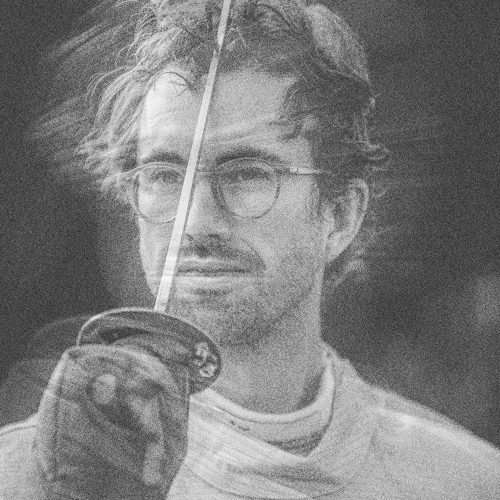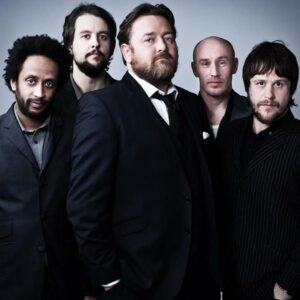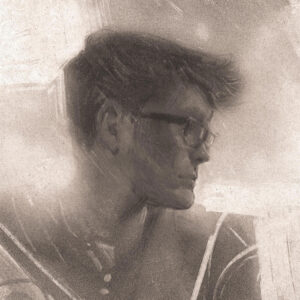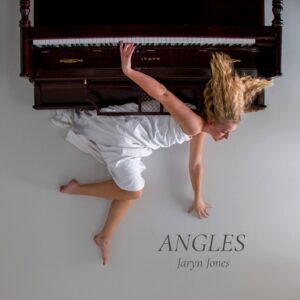“On 23 May 1810, was born one foredoomed to sorrow and pain, and like others to have misfortune.” A young Margaret Fuller wrote that as a note, which her father saved. It’s unclear what the context of that note was – it could have been a fit of pique, an expression of depression, or just a turn of phrase she liked – but it showed the kind of thoughtful insight Fuller possessed from a young age. A writer, an intellectual, and an early feminist, Fuller certainly didn’t live life as though she was resigned to “sorrow and pain,” but she likely knew even then that some things were unavoidable.
“Margaret,” the new song by the alt-country outfit Field Guides, is named after Fuller and includes some quotations from her life, but it’s only sort of about Margaret Fuller. Taking inspiration from a nonfiction book by Maria Popova, Field Guides uses the romantic longing and disappointment in Fuller’s life as a microcosm for everyone who has loved and lost. “The much that calls for more” is the opening line of the song, a direct quote from Fuller; in context, she was referring to intellectual pursuits and the promise of transcendence, but here it reflects upon romance. No matter how full of love you are for someone, it never feels like enough unless you’re right there with them.
Although the lyrics suggests a Biblical scope to this relationship (“Out in the yard/you are Cain, I am Abel”), it all remains quite understated throughout. The music reinforces this thoughtful, somewhat melancholic feeling. An alt-country strum is shot through with a droning peal of electric guitar feedback, a trick Wilco and Lambchop have both made use of. Benedict Kupstas’ vocals, too, have the plainspoken, hangdog vibe of Lambchop’s Kurt Wagner. But it never feels rote or derivative; it feels like what it is, which is a finely-crafted song filled with longing.
Could you explain in more detail how this song relates to Margaret Fuller?
It’s a bit of a tangential and refracted inspiration. But the first line of the song, “The much that calls for more,” is a direct quote; it’s how Fuller once described herself and her voracious appetite for intellectual inquiry and transcendence beyond the constrictions imposed on her as a woman in the 19th century. She is a recurring character in Maria Popova’s fantastic book, Figuring, which explores, among much else, some of Fuller’s intellectual infatuations and unrequited or unrealized loves, relationships that blurred the lines between friendship, creative/intellectual collaboration, and romantic love (including with Ralph Waldo Emerson). The bridge of the song interpolates a wistful quote from the philosopher and critical theorist Walter Benjamin about the disappointment of not being able to replicate the joy of first learning to walk.
The song sort of fancies Fuller and Benjamin as stand-ins or corollaries in a fraught and fizzling romantic partnership, using them as avatars to look at the ways ambition and curiosity and independence/codependence can bring two people together and pull them apart. Popova describes Fuller’s yearning for “fullness of being” as “the sublime integration of emotion, the intellect, and, as she would come to realize only at the end of her short life, the body.” (Fuller died at age 40, the age I am now.) The rephrasing of the chorus lines at the very end of the song (“All that we have is ours for the taking”) feels like a nod toward that same yearning.
It sounds like you’re a pretty well-read bunch. What are the qualities in literature that make you want to do something like you did with “Margaret,” where you go “OK, I’m going to make a song out of this”?
For me, so much of art-making involves synthesis, finding inspiration (more often than not within a book) and then following threads, connecting dots, and falling down rabbit holes. It’s less of a conscious decision to make a song out of a literary reference, and more that the text and narratives and allusions seep into my thinking and get absorbed (and rearranged) into the stew that then gets ladled out into a song.
There’s plenty of Wilco and Lambchop influences here, but it never feels like a slavish attempt at recapturing a sound. What’s the one element of your music that you consider uniquely “yours”?
Wow, that’s extremely flattering, thank you! Those two bands are definitely big touchstones, especially in the ways that both seem to honor folk traditions and care deeply about songcraft and lyricism while remaining curious and experimental. I would hope that Field Guides manage a similar balance. As for something unique about this project, perhaps it’s the way that the shifting lineup and collective vibe always brings in unexpected elements. That’s definitely what keeps me surprised and inspired. And I think that extends into the use of field recordings—letting the world into the music, blurring the boundaries between where the songs end and everything else starts. I try to do something similar lyrically, placing quotidian specificity alongside mythology or metaphor.
What would you say is the key line that ties “Margaret” together, the fulcrum it turns on?
This is a terrific question, and I’m struggling to find a single answer. The fulcrum, I think, might be not so much a specific line as the change of tense (and pronoun swap) that happens between the two choruses and then in the coda. The first chorus is mostly in the present tense (“And all that we have is yours for the breaking”) whereas the second chorus shifts to the past tense (“All that I had was yours for the taking”). And then the final line is back in the present tense and swaps the first- and second-person pronouns for a ‘we’/’ours’ (“And all that we have is ours for the taking”). Hopefully these subtle shifts create an additional layer of meaning, a dialectic deeper than what on the surface might feel simple.
What are your plans for the future?
We’re releasing the full album—Ginkgo—on June 24 via Whatever’s Clever (a collective, artist-run label) and will be going on a short tour in the northeastern US in July (dates below). I’m really looking forward to being on the road with the band and to meeting new friends. I’ve been working on new music that will probably slowly coalesce into the next album. Aside from music, I’ve been helping to run a CSA and food sovereignty org that works in the Catskills region of New York and down in NYC, which has been enlightening and galvanizing. I’m really hoping to spend more time up at the farm this summer and that I get to swim in some lakes and streams and other bodies of water.
Tour Dates:
- 7/07 – Kingston, NY @ Tubby’s – w/ Yours Are The Only Ears & Nighttime
- 7/08 – Troy, NY @ No Fun – w/ Babehoven & Ben Seretan
- 7/09 – Providence, RI @ AS220 – w/ Laura Wolf & theadoore
- 7/10 – Greenfield, MA @ 10 Forward – w/ Babehoven & Sailor Down
- 7/11 – New Haven, CT @ Never Ending Books – w/ Dave Scanlon
- 7/16 – Queens, NY @ TV Eye – w/ Scree







